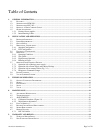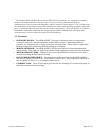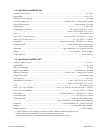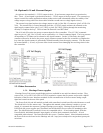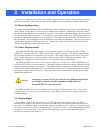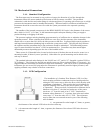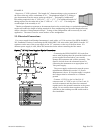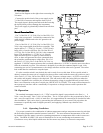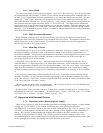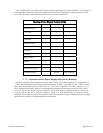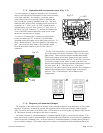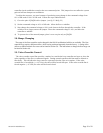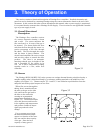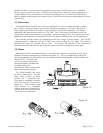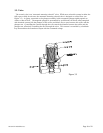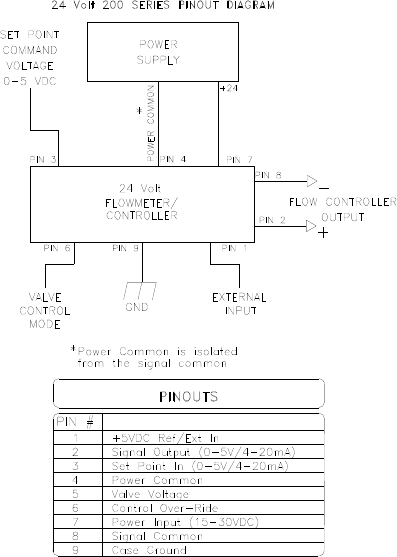
140-072011 200/202 Series Page 11 of 24
24 Volt Connections
Refer to the diagram to the right when connecting 24
Volt units.
Connect the positive lead of the power supply to pin
7 of the DE-9 connector and negative lead to pin 4.
The supply input is diode protected such that reversing
the input polarity will not damage the instrument.
The power supply is galvanically isolated from all other
pins.
General Connection Notes
Pin 7 of the DA-15 (15 Volt), Pin 9 of the DE-9 (24
Volt) is the case ground. It should be connected to the
cable shield if available and to the AC ground to the
power supply.
Pin 6 of the DA-15 (15 Volt), Pin 2 of the DE-9 (24
Volt) is the output signal from the flow controller. This
output will be 0 – 5 VDC/(4 - 20 mA), 5 VDC/20 mA
being 100% of rated or full flow. Pin 14 of the DA-15
(15 Volt), Pin 3 of the DE-9 (24 Volt) is the command
input. This should be a 0 – 5 VDC or (4 - 20 mA)
signal and must be free of spikes or other electrical
noise, as these will generate false flow commands that
the controller would attempt to adjust flow. Pin 15 of
the DA-15 (15 Volt), Pin 1 of the DE-9 (24 Volt) is a
regulated +5.00VDC output reference that is normally adjusted to 5.01VDC so that the user can achieve
full scale command set point. The reference is designed to provide the command signal for pin 14 by
connecting one end of a potentiometer to the voltage reference and the other end to ground. The center
lead would then be connected to setpoint input.
If a valve override switch is not desired, the unit is ready for use at this time. If the override switch is
desired, connect the center pin of a single pole, three-position switch with the center off position to pin 8
of the DA-15 (15 Volt), Pin 6 of the DE-9 (24 Volt). Connect a voltage source >10 VDC to one end of
the switch, and negative voltage to the other end. This will result in the valve being full open when the
positive is supplied to the override pin, off when the negative voltage is supplied and auto-control when
there is no connection to the valve override pin (OPEN-AUTO-CLOSE). This setup will be adequate for
most purposes, but there will be a small delay for capacitors to charge between switch operation and
control override.
2.6. Operation
The standard instrument output is a 0 - 5 VDC out and the signal is proportional to the flow i.e., 0
Volts = zero flow and 5 Volts = 100% of rated flow. The 4 - 20 mA option is also proportional to flow, 4
mA = zero flow and 20 mA = 100% of rated flow. It is suggested that all connections be checked for leaks
after installation. This can be done by pressurizing the instrument (do not exceed 500 psig unless the
instrument is specifically rated for higher pressures) and applying a diluted soap solution to the
connections.
2.6.1. Operating Conditions
For proper operation, the combination of ambient temperature and gas temperature must be such that
the flow meter temperature remains between 0 and 60°C. The most accurate measurement of flow will
be obtained if the flow meter is zeroed at operating temperature as temperature shifts result in some zero
offset. The HFM-201/HFC-203 series is intended for use in non-condensing environments only.
Condensate or any other liquids which enter the flow meter may destroy its electronic components.



